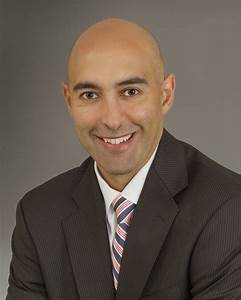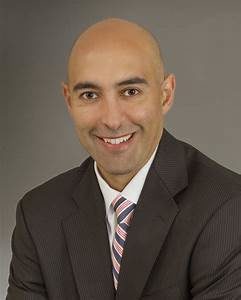-
 The Current Landscape of Mortgage Origination: Trends and Challenges
The Current Landscape of Mortgage Origination: Trends and Challenges Explore current trends and challenges in the U.S. mortgage origination market, including interest rate fluctuations, digital mortgage solutions, and compliance needs.
Explore current trends and challenges in the U.S. mortgage origination market, including interest rate fluctuations, digital mortgage solutions, and compliance needs.
Year-End '18 Performance Metrics Strong: Black Knight
- Monday, 04 February 2019
- Lending

More than a decade since the start of the financial crisis, performance metrics reflect a recovery to their long-term, 2000-2005 pre-recession averages, according to the “Mortgage Monitor Report” from Black Knight.
"Across the board, 2018 year-end numbers are good news from a mortgage performance perspective," said Ben Graboske, president of Black Knight's Data & Analytics division. "All four major performance metrics delinquencies, serious delinquencies, active foreclosures and total non-current inventory, ended the year below pre-recession averages for the first time since the financial crisis.”
Just 576,000 foreclosures were initiated throughout the entirety of 2018, an 18-year low, and most of these were repeat actions. In fact, first-time foreclosures were down 18 percent from 2017, the lowest point since Black Knight started reporting the metric in 2000. Even repeats, though making up more than 60 percent of all foreclosures, were down 6 percent from 2017.
The high-credit quality and corresponding lower risk continues to pay dividends in terms of mortgage performance. In addition, the low-interest rate environment resulted in a refinance-heavy blend of originations for years. Refis, as a whole, tend to outperform their purchase mortgage counterparts, which has boosted mortgage performance as well.
“We've had the benefit of strong employment and housing markets, which have helped the vast majority of homeowners meet their debt obligations, while those few who may have faced a possible default have gained enough equity to be able to sell rather than face foreclosure," said Graboske.
As the average interest rate on a 30-year mortgage ticked down again in January, falling below 4.5 percent for the first time since April 2018, Black Knight revisited the impact this change has had on borrowers for whom a refinance might make sense.
The decline in rates has returned the interest rate incentive to refinance to 1 million homeowners, a 50 percent increase in rate or term refinance incentive over the last two months. There are now 2.9 million homeowners with mortgages who could likely qualify for a refinance under broad-based criteria and also reduce the interest rate on their first mortgage by at least 0.75 percent by doing so, the largest this population has been since January 2018.
Even if rates should hold steady, and certainly if they fall further, this could lead to an unexpected bump in refinance volumes in early 2019.
Read more...Crapo’s Housing Reform Proposal Reduces GSE Influence
- Friday, 01 February 2019
- Lending

The influence of the government-sponsored enterprises over the mortgage market will decline, under a proposed plan for housing market reform proposed in outline form by Senate Banking Committee Chairman Mike Crapo, R-Idaho.
That’s because under his plan mortgage guarantors would be private companies including Fannie Mae and Freddie Mac, and they would operate under far more narrow regulatory parameters than is now the case.
Although the government-sponsored entities are earning profits, in another housing downturn taxpayers might be responsible for billions of dollars—as they were in 2008 when Fannie Mae and Freddie Mac were placed in conservatorship—where they remain, according to a press release from the senator. Conservatorship is neither sustainable, nor in the best interest of consumers, taxpayers, investors, lenders or the broader economy.
[caption id="attachment_9623" align="alignright" width="234"] Sen. Crapo[/caption]
Sen. Crapo[/caption]
“We must expeditiously fix our flawed housing finance system,” said Crapo. “My priorities are to establish stronger levels of taxpayer protection, preserve the 30-year fixed-rate mortgage, increase competition among mortgage guarantors, and promote access to affordable housing.”
The role of guarantors would be to guarantee the repayment of principal and interest to investors. In addition, they could issue guarantees on eligible mortgages securitized by primary market participants or issuers. Guarantors could purchase them from the primary market through a cash window and guarantee and securitize them through a securitization platform that Ginnie Mae will operate.
There would be limits on the percentage of mortgages a guarantor could guarantee. And a guarantor wouldn’t be allowed to offer volume discounts on the guarantee fee or other terms.
In addition, the multifamily business of Fannie Mae and Freddie Mac will be sold and operated as independent guarantors. Insured depository institutions won’t be permitted to be guarantors, and they won’t be permitted to offer volume-based discounts on the guarantee fee or other terms.
The Federal Housing Finance Agency will be permitted to require guarantors to engage in approved credit risk transfers. FHFA can consider the quantity and quality of credit risk transfers when establishing capital requirements for a guarantor, all of whom will be required to remain above the statutory minimum leverage ratio.
Read more...
Freddie: Mortgage Rates Increased Last Week
- Thursday, 31 January 2019
- Lending

Mortgage rates have inched up after weeks of moderating, according to the Primary Mortgage Market Survey from Freddie Mac.
“Purchase applications were down this week after soaring early in the year,” said Sam Khater, chief economist for Freddie Mac. “However, softening house price appreciation along with increasing inventory of homes on the market, and historically low mortgage rates, should give a boost to the spring home buying season.”
[caption id="attachment_9187" align="alignright" width="214"] Sam Khater[/caption]
Sam Khater[/caption]
Below are additional takeaways on interest rates:
- The 30-year fixed-rate mortgage averaged 4.46 percent with an average 0.5 point for the week ending Jan. 31, 2019, up from last week when it averaged 4.45 percent. A year ago, the 30-year fixed-rate mortgage averaged 4.22 percent.
- The 15-year fixed rate mortgage averaged 3.89 percent with an average 0.4 point, up from last week when it averaged 3.88 percent. A year ago, the 15-year fixed-rate mortgage averaged 3.68 percent.
- The five-year Treasury-indexed hybrid adjustable-rate mortgage averaged 3.96 percent with an average 0.3 point, up from last week when it averaged 3.9 percent. A year ago at this time, the 5-year adjustable-rate mortgage averaged 3.53 percent.
SEC Filing: Black Knight Pays $375M for Potential Stake in D&B
- Tuesday, 29 January 2019
- Lending

Black Knight, a member of a consortium that has agreed to acquire The Dunn and Bradstreet Corp., will spend most of the $375 million earmarked for the transaction to purchase the equity interests of another consortium member.
Black Knight Inc. will invest $250 million to purchase the ownership interest of QIA FIG Holding, a Doha, Qatar-based financial company, according to the latest Form 8-K it filed with the Securities and Exchange Commission.
The remaining $125 million is an equity commitment to the consortium, Star Parent LP. The investment in Dun & Bradstreet would yield less than a 20 percent share in Dun & Bradstreet. And there is some exposure to Black Knight: If because of a failure to receive regulatory approval or for any other reason, the deal isn’t completed, Dunn and Bradstreet will receive a termination fee of $380.1 million from the consortium.
In addition to Black Knight, other participants who signed the SEC filing, are Cannae Holdings Inc., THL Equity Advisors VIII LLC, Thomas H. Lee Partners L.P., Thomas H. Lee Advisors LLC, and THL Holdco LLC. The acquisition will be financed through equity financing provided by the consortium, preferred equity and debt financing from Bank of America, Merrill Lynch, Citigroup Global Markets Inc., and the Royal Bank of Canada.
Read more...






